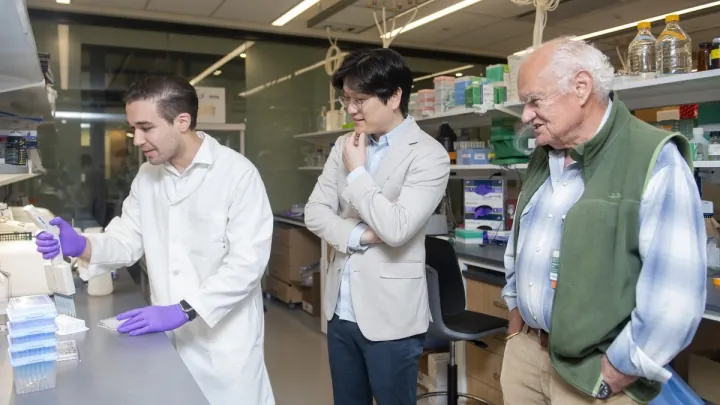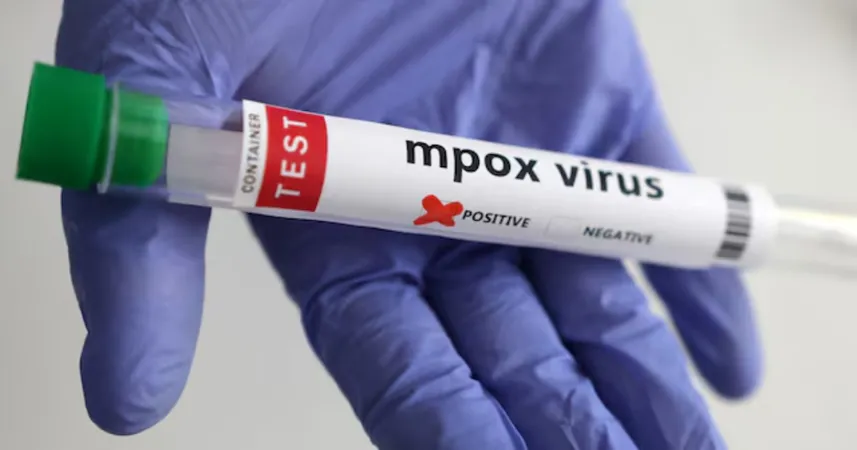
Major Boost to Vaccine Research at Dartmouth University: What It Means for the Future
2024-10-07
Author: John Tan
Major Boost to Vaccine Research at Dartmouth University: What It Means for the Future
Dartmouth University is entering an exciting new chapter in vaccine research, fueled by a generous $1 million gift from the Jack and Dorothy Byrne Foundation. This funding will significantly enhance the efforts of the Dartmouth International Vaccine Initiative (DIVI), which is a collaborative project that brings together faculty and students from across various disciplines at Dartmouth and its professional schools.
According to Ford von Reyn, an infectious disease expert and professor at Geisel School of Medicine, the donation enables DIVI to launch groundbreaking multidisciplinary academic and research initiatives on campus in response to the growing enthusiasm among faculty and students regarding vaccine research. "This is an exciting time for vaccine research at Dartmouth," von Reyn stated, highlighting the momentum building within the university's vaccine initiatives.
This month, DIVI will kick off a bi-monthly campus seminar series focused on vaccine research, commencing with a keynote address from Sten Vermund, dean emeritus of the Yale School of Public Health. His talk, titled "Translational and Implementation Science: Examples from Vaccinology," will be held on October 8 at the Geisel School.
DIVI is also collaborating with the International Vaccine Institute, a UN-sanctioned organization based in Seoul, South Korea, which specializes in vaccine development for lower- and middle-income countries. This partnership aims to evolve the Dartmouth-developed TB vaccine, known as DAR-901, and enhance vaccine research capabilities in Africa.
Last December, the first Dartmouth International Vaccine Conference was held, where von Reyn outlined his vision for creating a distinctive multidisciplinary vaccine institute at the university. The conference underscored Dartmouth’s historic contributions to vaccine research, alongside ongoing projects spearheaded by faculty from various disciplines, including Geisel, Thayer, Tuck, and Arts & Sciences.
A series of key research advancements have already made headlines at the university. A team led by former Geisel professor Jason McLellan significantly advanced the development of COVID-19 vaccines by creating a method to stabilize the coronavirus spike proteins, a crucial component for vaccine effectiveness.
Since the 2023 conference, faculty members Christopher Snyder and Kendall Hoyt have co-authored a critical policy paper detailing design features that led to the successful execution of Operation Warp Speed, offering a roadmap for future vaccine development initiatives.
In another significant contribution, Cody Meissner, a professor of pediatrics, shared insights from his extensive experience on several advisory committees, focusing on lessons learned from the COVID-19 pandemic that could enhance preparedness for future outbreaks.
Innovation does not stop there; researchers like Peter Wright are actively exploring novel vaccine delivery methods, including a nasal spray vaccine for COVID-19. Wright emphasized the advantage of nasal and oral vaccines, which not only provide individual protection but may also curb virus transmission to others.
Furthermore, Wright is collaborating with engineering professor Jiwon Lee on developing broad-spectrum immunity against influenza viruses, aiming to create vaccines that require less frequent updates as new strains emerge.
In a groundbreaking development, the Advanced Research Projects Agency for Health has recently announced funding for projects that aim to leverage artificial intelligence in the design of vaccines targeting multiple viruses simultaneously. This includes collaborative efforts from professors Margaret Ackerman and David Leib, who are working on novel vaccines against various human herpesviruses.
"The plan is very ambitious—to bring a vaccine to clinical trials within three years," Leib noted, reflecting the bold objectives the research teams have set for themselves.
Overall, the Dartmouth International Vaccine Initiative is positioning itself as a driving force in the future of global vaccine research. By uniting researchers from diverse fields, it strives to innovate and make vaccines more accessible and effective, particularly in lower-income regions, ultimately reshaping the landscape of public health around the world.




 Brasil (PT)
Brasil (PT)
 Canada (EN)
Canada (EN)
 Chile (ES)
Chile (ES)
 España (ES)
España (ES)
 France (FR)
France (FR)
 Hong Kong (EN)
Hong Kong (EN)
 Italia (IT)
Italia (IT)
 日本 (JA)
日本 (JA)
 Magyarország (HU)
Magyarország (HU)
 Norge (NO)
Norge (NO)
 Polska (PL)
Polska (PL)
 Schweiz (DE)
Schweiz (DE)
 Singapore (EN)
Singapore (EN)
 Sverige (SV)
Sverige (SV)
 Suomi (FI)
Suomi (FI)
 Türkiye (TR)
Türkiye (TR)